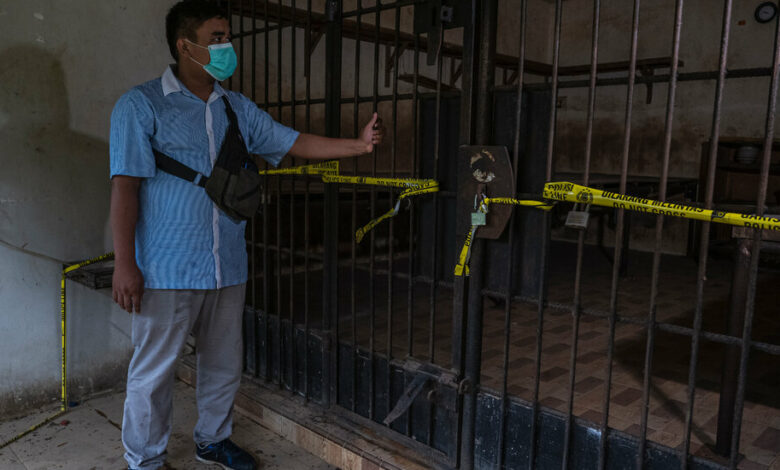Indonesian court acquits former official accused of enslaving addicts

A former civil servant accused of imprisoning and enslaving 656 people on his estate in Indonesia under the guise of drug rehabilitation has been acquitted of human trafficking, adding to concerns about rampant regional corruption in the country.
A three-judge panel on Monday found the former official, Terbit Rencana Perangin-angin, not guilty, a blow to those who had demanded justice and compensation for imprisonment, ill-treatment and forced labor.
“We are very saddened that in Indonesia, which has been an independent country for decades, modern slavery is still happening. This happened in the home of a civil servant who has the responsibility to protect his citizens,” said Anis Hidayah, member of the Indonesian Human Rights Commission.
The trial took place in Langkat Regency, a county-sized district in North Sumatra where Mr Perangin-angin had long ruled as regent and where several of his relatives held important positions of power.
After the judges had read their verdict, Mr. Perangin-angin thanked them and knelt down before themas he hit the ground with his head.
Prosecutors, who had sought a 14-year prison sentence and $140,000 in damages, said they would appeal.
The case has shown how widespread corruption is at the regional level in Indonesia, where governors, regents and mayors of major cities are often referred to as “little kings”.
The cages were discovered in January 2022 when anti-corruption investigators searching for Mr Perangin-angin in a separate bribery case found 65 men locked up on his estate. He was found guilty of bribery in that case, sent to prison and removed from office.
As regent, Mr. Perangin-angin had started a drug rehabilitation program that promised free treatment. Some parents turned their sons in, hoping the program would help them overcome their drug addiction.
But victims said they never received addiction treatment. Instead, they said they were locked up, beaten, tortured and forced to work on the palm plantation, palm oil factory and former regent’s home. Some victims said they were sexually abused by men guarding them.
A police investigation found that 656 men and teenage boys were held in prison over a 10-year period. Most were held for about 18 months. The Human Rights Commission found that six prisoners died, including at least three who were tortured to death.
According to an estimate by Indonesia’s Witness and Victim Protection Agency, Mr Perangin-angin’s company earned $12 million from the prisoners’ unpaid labor.
“This decision does not provide a sense of justice for the alleged victims, which is their right,” said Antonius Wibowo, deputy chairman of the agency, which has assisted many victims while concealing their identities.
Guards at the cages on Mr. Perangin-angin’s estate included off-duty soldiers and police officers, and members of a youth organization known for extortion and led by Mr. Perangin-angin. Dozens of perpetrators named by victims have never been prosecuted. Of those who have been charged, the longest sentence imposed is three years.
The son of the former regent, Dewa Rencana Perangin-angin, was convicted of torturing a man to death and sentenced to 19 months in prison. He was released after serving half of his sentence.




